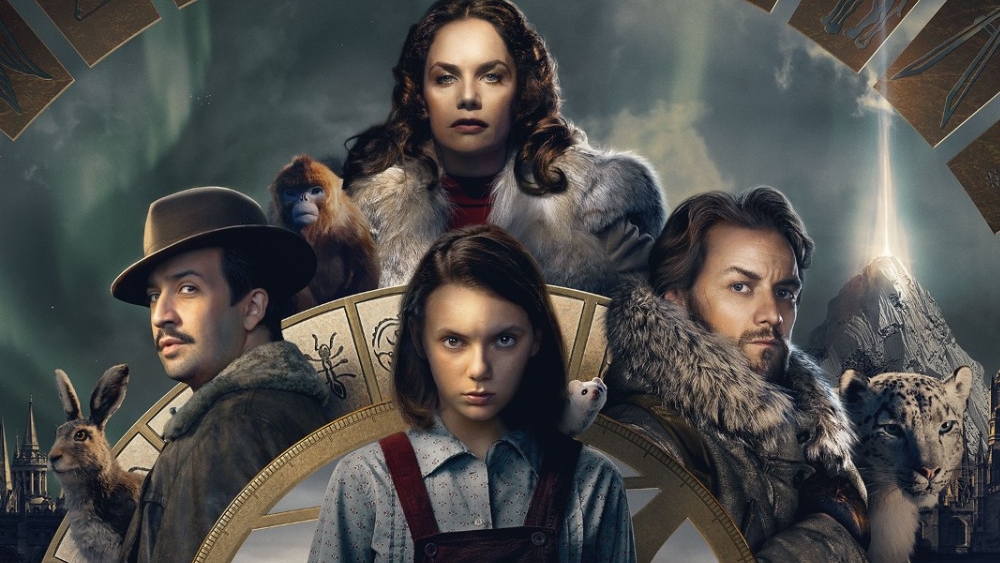New Foxtel show takes on Narnia
His Dark Materials attacks religion, God and CS Lewis
Anti-God, anti-religion and anti-Narnia are labels applied to new HBO and BBC TV show, His Dark Materials.
Released around the world this week and available in Australia on Foxtel, His Dark Materials is the latest big-budget attempt to bring author Philip Pullman’s celebrated and controversial children’s book series to screens.
“My books are about killing God.” – Philip Pullman
The previous crack was The Golden Compass (2007), a blockbuster flop that tried to compete with fantasy behemoth Harry Potter. It failed, and was widely disparaged for stripping Pullman’s bestselling books of their allegorical sting – especially his attacks upon organised religion.
Critics and fans have given 2019’s His Dark Materials the thumbs up, with many believing it stays true to Pullman’s imaginative tale of young girl Lyra Belacqua coming to discover that, well, everything is not as she thinks it is.
Set in various universes, times and locations, Belacqua’s odyssey hinges on her search for a lost friend. En route, she becomes embroiled in her uncle Lord Asriel’s discoveries about potent substance “Dust”. Trying to cover up his findings is the Magisterium – the institutionalised, fundamentalist church that rules society. This controlling Church wants to destroy Dust, believing it will eradicate human sin. But “heretic” Asriel and his niece may have found out what Dust is REALLY all about.
Any echoes of the Catholic Church and truth claims of Christianity are not coincidental throughout His Dark Materials, causing some Christians to instantly be outraged by or terrified of Pullman’s stories. When God (called “The Authority”) is depicted as a weak tyrant and “The Fall” is flipped to become the high point of human enlightenment, you know believers in the Bible might be rocked.
At different points, Pullman has been quoted as saying “my books are about killing God” and that he set out to “undermine the basis of Christian belief” in His Dark Materials. An atheist who rejected the faith shared with him by his clergyman grandfather, British writer Pullman also has not held back about his disdain for Christian author CS Lewis’ acclaimed children’s books The Chronicles of Narnia.
Similarities between Pullman and Lewis’s book series are undeniable. From fantasy worlds to child heroes and talking animals, His Dark Materials and The Chronicles of Narnia share many stylistic devices. But they also are anchored in deep topics such as belief, good, evil, control, salvation and what is our universe really all about.
None of that seems to endear Pullman to Lewis’s work, though. In 2001, he told The Guardian: “I hate the Narnia books, and I hate them with deep and bitter passion, with their view of childhood as a golden age from which sexuality and adulthood are a falling away …”
“Philip Pullman is attacking a particular form of control.” – Jane Trantor
Christian readers and viewers might have already switched off to His Dark Materials. As if trying to win them back to the new HBO/BBC series, executive producer Jane Trantor declared the source material an attack on the corrupting power of religion.
“Philip Pullman in these books is not attacking belief, is not attacking faith,” Trantor declared to The Hollywood Reporter. “He’s not attacking religion or the church, per se. He’s attacking a particular form of control, where there is a very deliberate attempt to withhold information, keep people in the dark, and not allow ideas and thinking to be free …
“It doesn’t equate to any particular church or form of religion in our world. So we should be clear on that.”
Given Pullman’s comments about killing God and undermining Christianity, Trantor seems to be overselling her defence of Pullman.
It is true he has said similar things: “What I am against is organised religion of the sort which persecutes people who don’t believe. I’m against religious intolerance,” he told The Sydney Morning Herald. During a Q&A with fans, Pullman said: “In my view, belief in God seems to be a very good excuse, on the part of those who claim to believe, for doing many wicked things that they wouldn’t feel justified in doing without such a belief.”
But Pullman also said his work has been informed by his rejection of any belief system that suggests it is the only way. “What I’m against is what [poet] William Blake called single vision — being possessed by one single idea and seeing everything in terms of this one idea, whether it’s a religious idea or a scientific idea or a political idea,” Pullman told The New Yorker in September.
“It’s a very bad thing. We need a multiplicity of viewpoints.
“So, I’m perfectly willing to entertain the prospect of [Pullman’s 2019 novel] The Secret Commonwealth — this world of fairies, ghosts, witches, and so on — side by side with the world of reason. I wouldn’t want to be governed by one or the other.”
In Pullman’s ideal world, he is happy to include fantasy and reason. But not Jesus, the one who called people with “I am the way, the truth and the life”.

